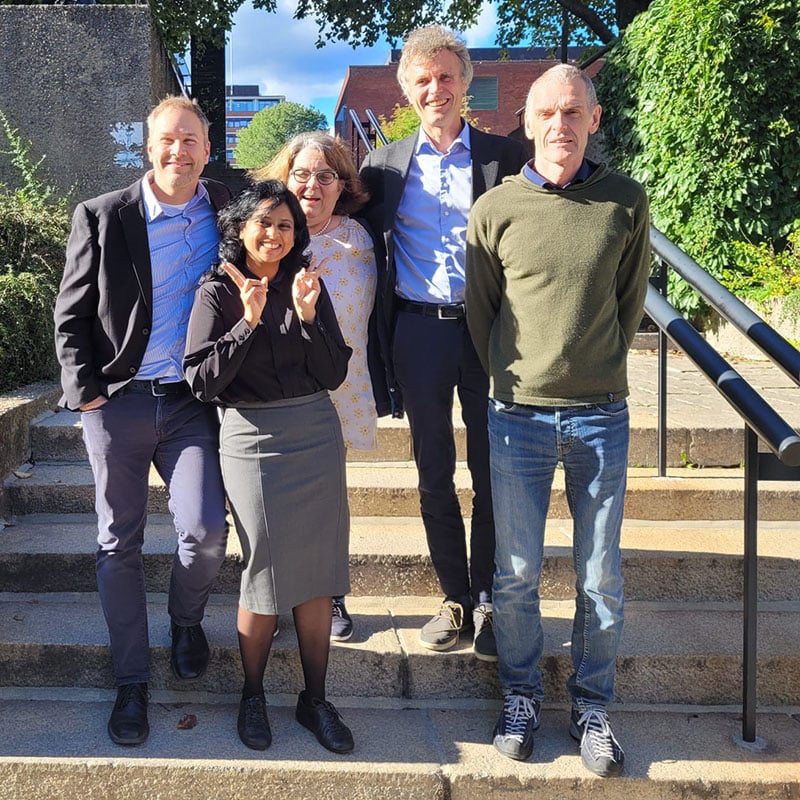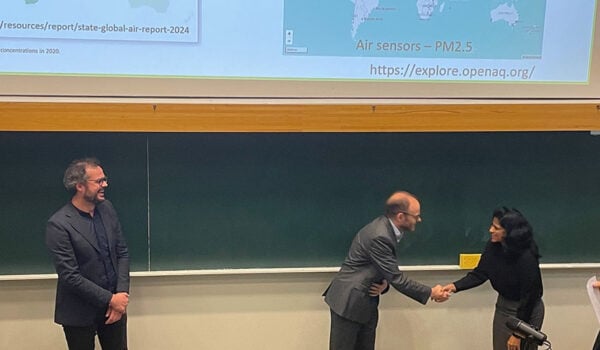On 17 September, Shobitha Shetty of the Department of Geosciences, University of Oslo and the Urban Environment and Industry department at NILU, defended her PhD thesis Synergy of Earth Observation and Machine Learning for Air Quality Monitoring in Europe.
Air pollution is a major environmental and public health challenge. This is particularly the case in urban areas, where nitrogen dioxide (NO2) and fine particulate matter (PM2.5) contribute significantly to negative health effects. Accurate estimates of surface air pollution in high resolution are essential for exposure assessments and relevant policy interventions.
Dr. Shobitha Shetty has explored the synergy between Earth observation data and machine learning techniques for monitoring air quality in Europe. She has investigated how advanced computational methods can enhance the understanding and prediction of air pollution patterns, thus contributing to environmental science and public health.
In her doctoral work, Shetty examines how satellite data, atmospheric models, station measurements and low-cost sensors can be combined to improve air quality monitoring over Europe. With focus on PM2.5 and NO2, she shows that integrating these data sources with machine learning provides more precise, timely and detailed spatial and temporal maps of air pollution.
The study demonstrates the potential of data synergy and machine learning to strengthen both air quality monitoring and policymaking.
Shobitha’s supervisors were senior scientists Dr. Philipp Schneider, Dr. Paul Hamer, Dr. Kerstin Stebel and Dr. Arve Kylling of NILU, and Professor Terje Koren Berntsen of the Department of Geosciences, University of Oslo.
Our congratulations!


